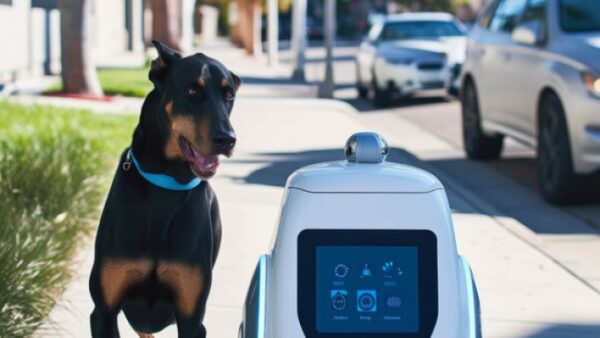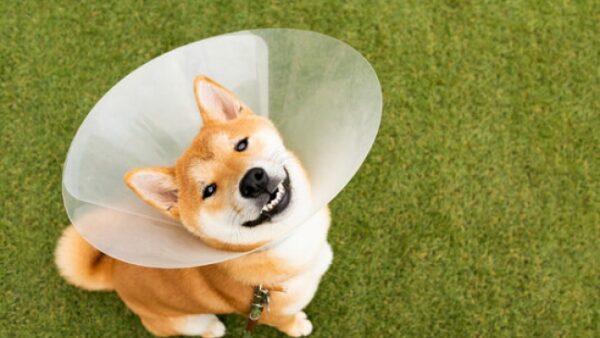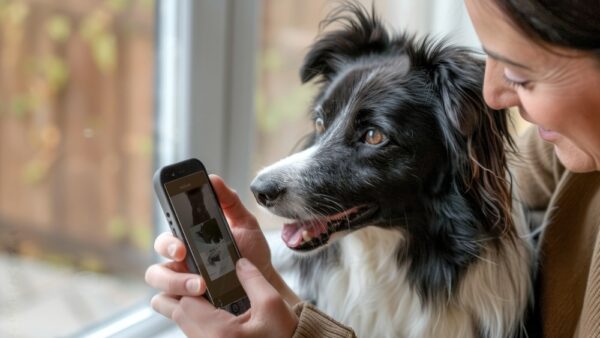Neutering is a typical dog surgery, which involves the removal of testicles to avoid reproduction. It is often pretty straightforward and harmless.
But sometimes dog owners find their dogs struggling to pee afterwards. This could be due to several reasons, which are important to figure out for your dog’s recovery.
In this blog post, we have revealed the reasons why your dog may not be peeing after neutering.
Without further ado, let’s begin!
Why is My Dog Not Peeing After Neutering?
Reduced Water Intake
Neutered dogs may exhibit a reluctance to drink water after surgery. Reduced water intake directly affects urine output. This can be due to the dog associating pain or discomfort with urination post-neutering. Additionally, if your dog received IV fluids during surgery, they might not feel the immediate need to drink water.
Pain and Discomfort in Region of Incision
Just like any operation, neutering can result in pain. If hurt is linked with peeing, dogs may resist it. This is especially true for male dogs who are newly neutered. Treating their pain appropriately is important.
Anesthesia After Effects
Post-anesthesia, dogs might be sluggish and confused. In the first post-surgery hours, your pet might prioritize shaking off anesthetic effects over peeing. Its normal activities, like outdoor bathroom trips, could be impacted by this feeling.
Surgery Site Infection
It’s crucial to watch the surgical area’s state. If you see signs of infection or discomfort there, your pooch might not pee because it hurts. Keeping the site clean and adhering to aftercare instructions post-surgery is key.
Restricted Movement and Opportunity
After neutering, vets often recommend restricted activity to aid recovery. If your dog is limited in movement or has different opportunities to relieve itself, it may be hesitant to urinate. Offering a familiar and comfortable area for toileting can encourage them.
What to Do if Your Dog Isn’t Peeing After Neutering

Notify Your Vet
If your dog appears to be in pain or hasn’t urinated within 24 hours post-neutering, contact your vet. They can assess the situation, prescribe medications if necessary, or adjust the current dosage.
Observe Behavior
Pay attention to your dog’s behavior. If they attempt to urinate but seem to be holding back, it may indicate discomfort. Report any unusual behavior to your vet.
Keep a Record
Check your dog’s activity and try to encourage urination at set times. If there is no improvement or struggling, see your vet soon.
Assist Them
If your dog has difficulty moving due to tenderness or grogginess, use a sling or a supportive aid to help them walk. Ensure this is suitable for their specific surgical conditions.
Consider UTI Symptoms
Female dogs may be prone to urinary issues after neutering. Watch for signs like straining, blood in urine, or licking. Give your vet a fresh urine sample if symptoms appear.
Investigate Possible Urination Elsewhere
Double check your home for any unnoticed spots where your dog may have urinated. Dogs can be subtle in their behavior, especially if they are unwell.
Frequently Asked Questions (Why is My Dog Not Peeing After Neutering?)
Can neutering change my dog’s peeing habits?

Yes, neutering can cause dogs to drink and pee more, especially right after surgery. Male dogs can have different peeing habits due to hormonal changes after testicle removal.
What if my dog isn’t peeing at all?
This is a critical situation needing immediate vet attention. If your dog’s bladder feels like a water balloon, rush to the vet right away.
What’s the longest a dog can hold in its pee?
This varies with the dog’s age. Puppies can hold it in for an hour for every month of their age. However, adult dogs can ideally hold it in for up to eight hours, but ideally no more than six for good health.
Will neutering help my dog pee less in the house?
Yes, neutering can affect your dog’s peeing habits. Neutering may make male dogs pee less indoors due to less marking behavior. However, neutering doesn’t directly impact house training.
How soon should a dog pee after neutering?
Not urinating in the first 24 hours post-neutering may indicate a surgical issue and require veterinary evaluation. Monitor your dog’s ability to go to the bathroom and contact the vet if any difficulty arises.
Can neutering a male dog cause bladder problem?
The benefits neutering offers to dog weigh higher than its complications. However, in rare cases, hormone responsive incontinence can occur in neutered dogs. This condition, characterized by leaking urine while resting, may develop months to years after neutering.
What can I give my dog to help him pee?
Encourage increased water intake by providing canned food or adding chicken broth. Use water fountains and place additional bowls of fresh water throughout the house to ensure proper hydration.
What are the side effects of neutering dogs?
Following neutering, dogs may exhibit post-anesthesia dizziness, anxiety, and fussiness. While most recover quickly, it’s crucial to keep them calm for 10 to 14 days post-surgery, following veterinary recommendations.
Conclusion
While it’s not uncommon for dogs to show hesitation in urinating after neutering, prolonged reluctance or signs of discomfort should prompt communication with your vet. Monitoring your dog’s behavior and providing appropriate support can contribute to a smoother recovery process.







Leave a comment